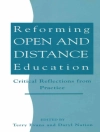Substantial claims are made about the extent and impacts of volunteering, often characterised by limited engagement with research evidence. Volunteering is highly stratified, so whether it can bridge social divisions in an unequal society is questionable. Volunteering may have some benefits for individuals and communities, but these impacts are often marginal; volunteering is not a treatment that can be prescribed with certainty. There is certainly a strong ‘spirit of service’ evident in the British population, but it requires considerable faith to believe that it can be extended to all. This book provides a comprehensive and original overview of evidence about the patterns and impacts of volunteering, underpinning a novel, but sceptical, assessment of the contributions of voluntary action to British society.
Inhaltsverzeichnis
Introduction
Part I Frameworks
1 Concepts and definitions: hunting Snarks and ‘mapping volunteerland’
2 Trends in voluntary action
Part II Contours
Introduction to Part II
3 Diversity and inequality in voluntary action
4 Core and periphery
5 Community-level variations in voluntary action: places don’t volunteer, people do
6 Circumstances, habits and trajectories: journeys into and through volunteering
Part III Impacts
Introduction to Part III
7 Do not expect miracles: the impacts of voluntary action
8 Volunteering, employability and policy
9 Volunteering, health and well-being
10 Volunteering and civic engagement
Part IV Changing contexts
Introduction to Part IV
11 Demographic change, economic circumstances and attitudes to volunteering
12 Cultivating and conserving the spirit of service
13 COVID-19 and voluntary action
Conclusions: Beveridge and the spirit of service
References
Index
Über den Autor
John Mohan is Professor of Social Policy at the University of Southampton












